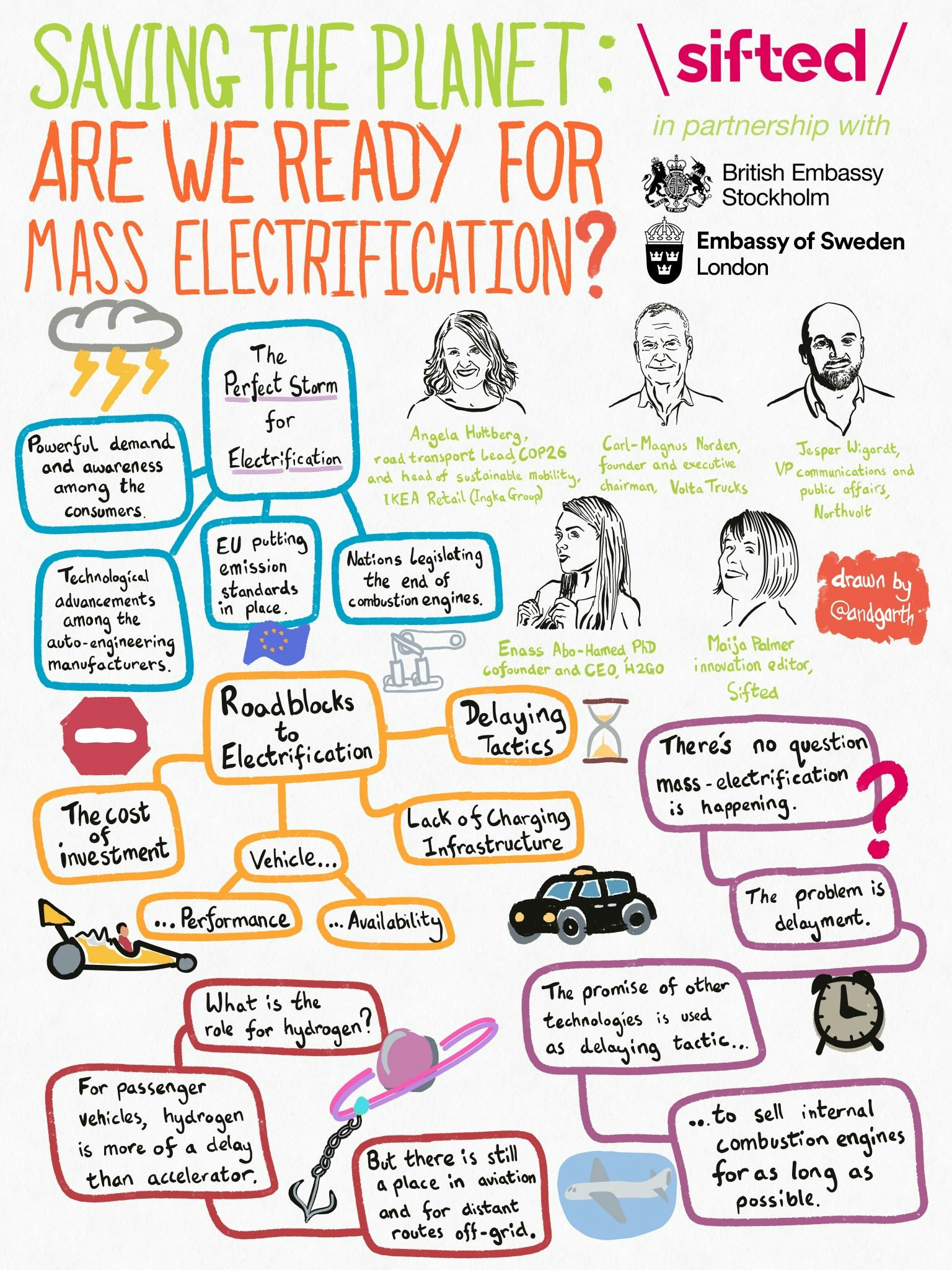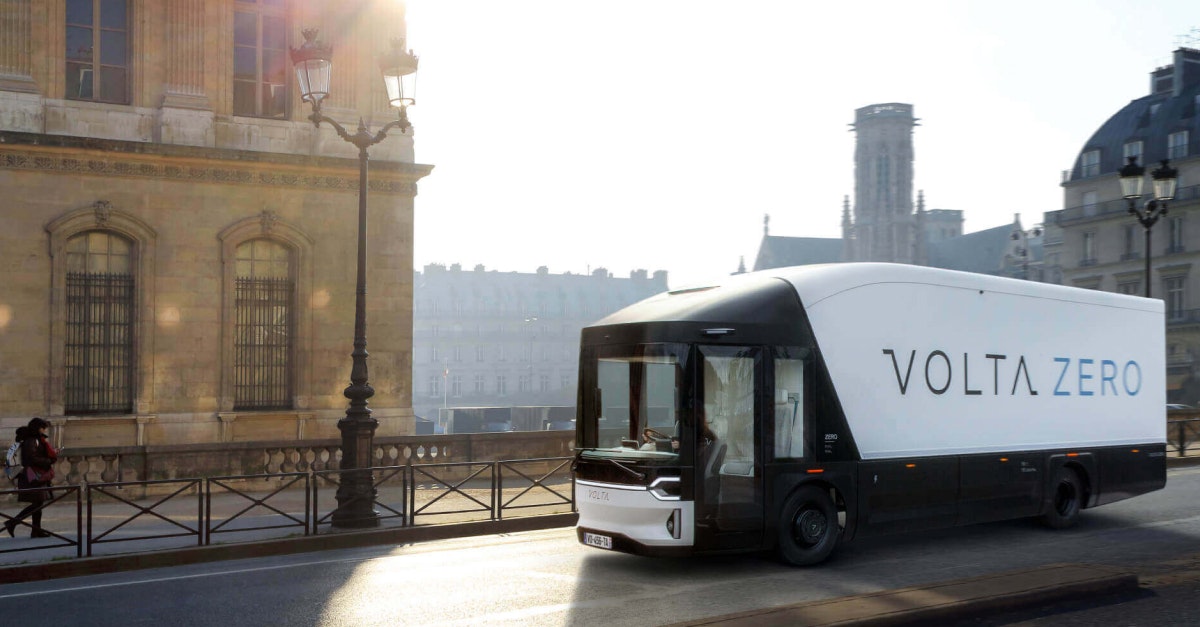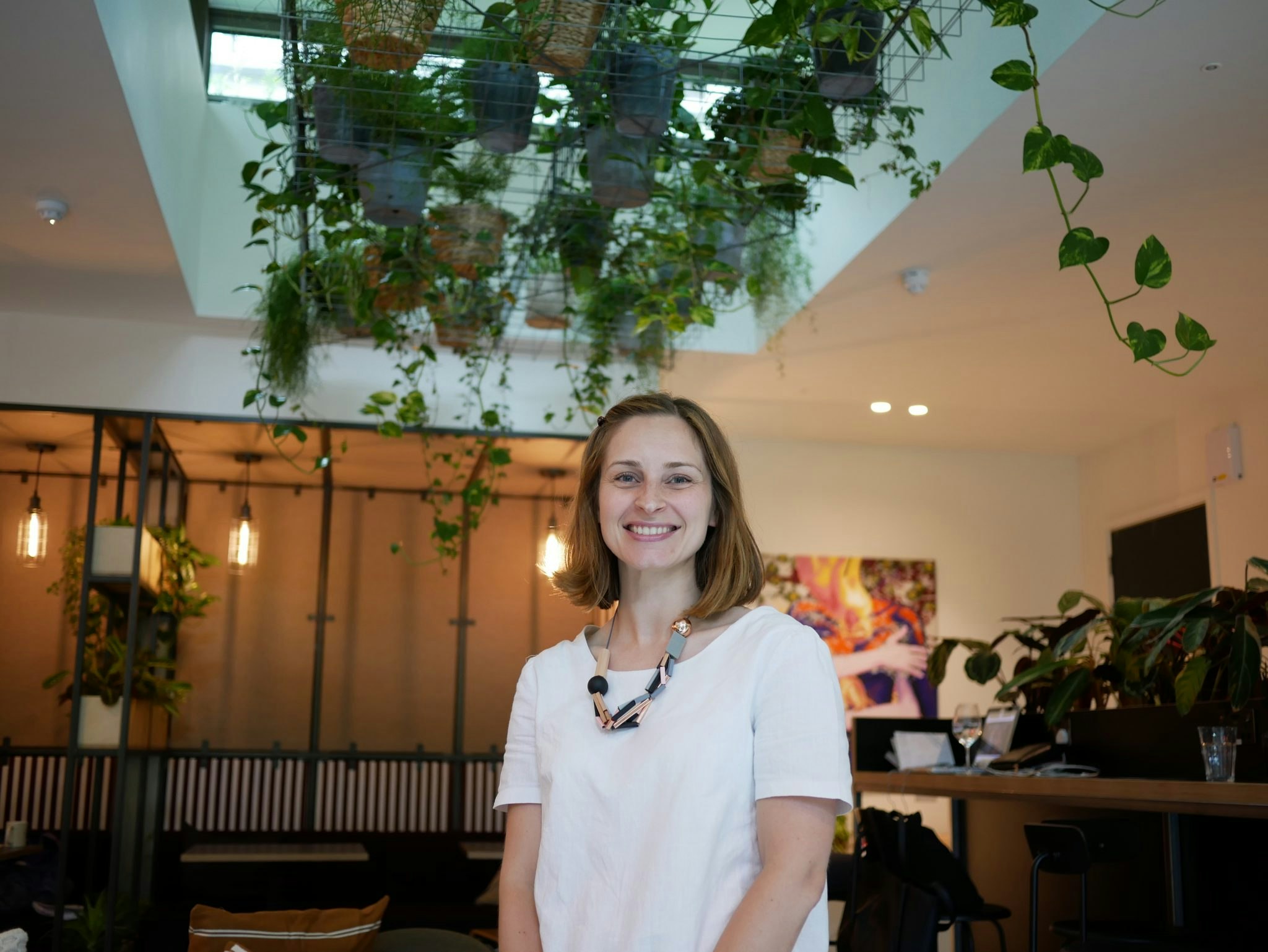Signs of a worsening climate crisis in the form of wildfires and hurricanes, and the fast-approaching COP26 conference, means reducing carbon emissions is at the top of the news cycle.
This means a golden opportunity for sustainable and electrification startups — so how can startups get their tech to market quickly? What are the environmental concerns when it comes to manufacturing electric products? And what role do investors play in reaching net zero?

We asked all this and more to our expert Sifted Talks panel, which featured an opening address by the British ambassador to Sweden and the Swedish ambassador to the UK, as well as insights from sustainability leaders like:
- Jesper Wigardt, VP communications and public affairs at lithium-ion battery manufacturer Northvolt
- Carl-Magnus Norden, founder and executive chairman of Volta Trucks, a vehicle manufacturer specialising in EVs
- Angela Hultberg, road transport lead for COP26 and head of sustainable mobility at IKEA Retail
- Enass Abo-Hamed, CEO and founder of H2GO, a cleantech business that stores excess grid energy as solid-state hydrogen
Here’s what we learned:
1. Electrification isn’t always ‘good’ for the planet
Electric batteries will underpin transport’s electrification over the next decade — but production can be harmful to the environment.
Large amounts of power are required in electric battery production, and the lithium and cobalt used present wastage and recycling challenges. Northvolt’s Wigardt says it’s crucial for producers to back up their sustainability credentials by finding other ways to mitigate overall negative environmental impact.
For example, Northvolt’s main production line is based in Sweden for the ease of access to, and lower costs of, renewable energies such as hydropower. The company has now implemented a recycling process where it can recall used batteries and extract metals for reuse in other vehicles.
It matters how you produce these batteries… If you care about CO2 output, then what type of energy are you feeding into your factories?... It matters how you do it, and Europe should think about this seeing as we’re building this industry from scratch. We have a once in a lifetime opportunity to do this right.” — Jesper Wigardt, Northvolt
2. Startups: Get to market quickly, and bring clients with you
Norden says companies should make the most of existing technologies to bring electric products to market as quickly as possible.
Volta Trucks’ fully electric delivery vehicle, the ‘Volta Zero’, for example, uses the same technology and charging infrastructure as smaller eco-friendly cars, and will be rolled out in 20 major European cities by the end of next year.

Norden says they’ll manage this speedy rollout without compromising sustainable practice with something called ‘holistic responsibility’ — which is when eco-friendly businesses help clients manage their journey to carbon zero.
He says Volta Trucks will take steps such as installing charging points at customers' depots, both to reduce emissions and smooth the transition as best as possible.
We are taking full responsibility for the full electrification of our customers… Our ambition is that it should be as easy for someone that doesn’t know how to run an electric fleet, to go from what they know really well; running a diesel fleet to running an electric fleet.” — Carl-Magnus Norden, Volta Trucks

3. Investors can help electric products become cheaper
What role do investors play in helping these electric products become more viable for the average consumer?
Hultberg says investors have two roles to play. First, they should stop investing in any company involved in fossil fuels. Second, they must invest in sustainable startups that offer solutions in reducing carbon emissions to help increase the scale of production. This will, in turn, drive down prices.
Don’t invest in fossil fuels. Plain and simple. Just don’t. I think already today if the fossil fuel industry actually bore its own costs, and we stopped subsidising it, battery costs would already look a lot better… Invest where your money makes sense. Invest in companies that are committed to long-term change in operations.” — Angela Hultberg, COP26 and IKEA Retail
4. Electric batteries aren’t the only solution
While the panel focussed primarily on the use of electric battery-based products in addressing carbon emissions, H2Go founder Abo-Hamed suggests we should be exploring other technologies, too. She says new collaborations between researchers will result in exciting hybrid approaches to solving our carbon consumption.
H2Go has created a solution for storing steady-state hydrogen, which could lead to advancements in fuel cell technology — the production of electricity by turning hydrogen and oxygen into water.
We need to be looking at hybrids, or a portfolio of technologies, because we need to accelerate. We don’t have all the time in the world to rely on scaling one technology.” — Enass Abo-Hamed, H2GO
To find out more about saving the planet and whether the world is ready for mass electrification, you can watch the full Sifted Talk here:


